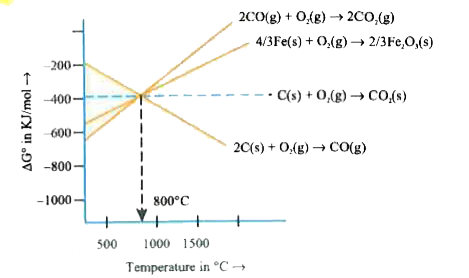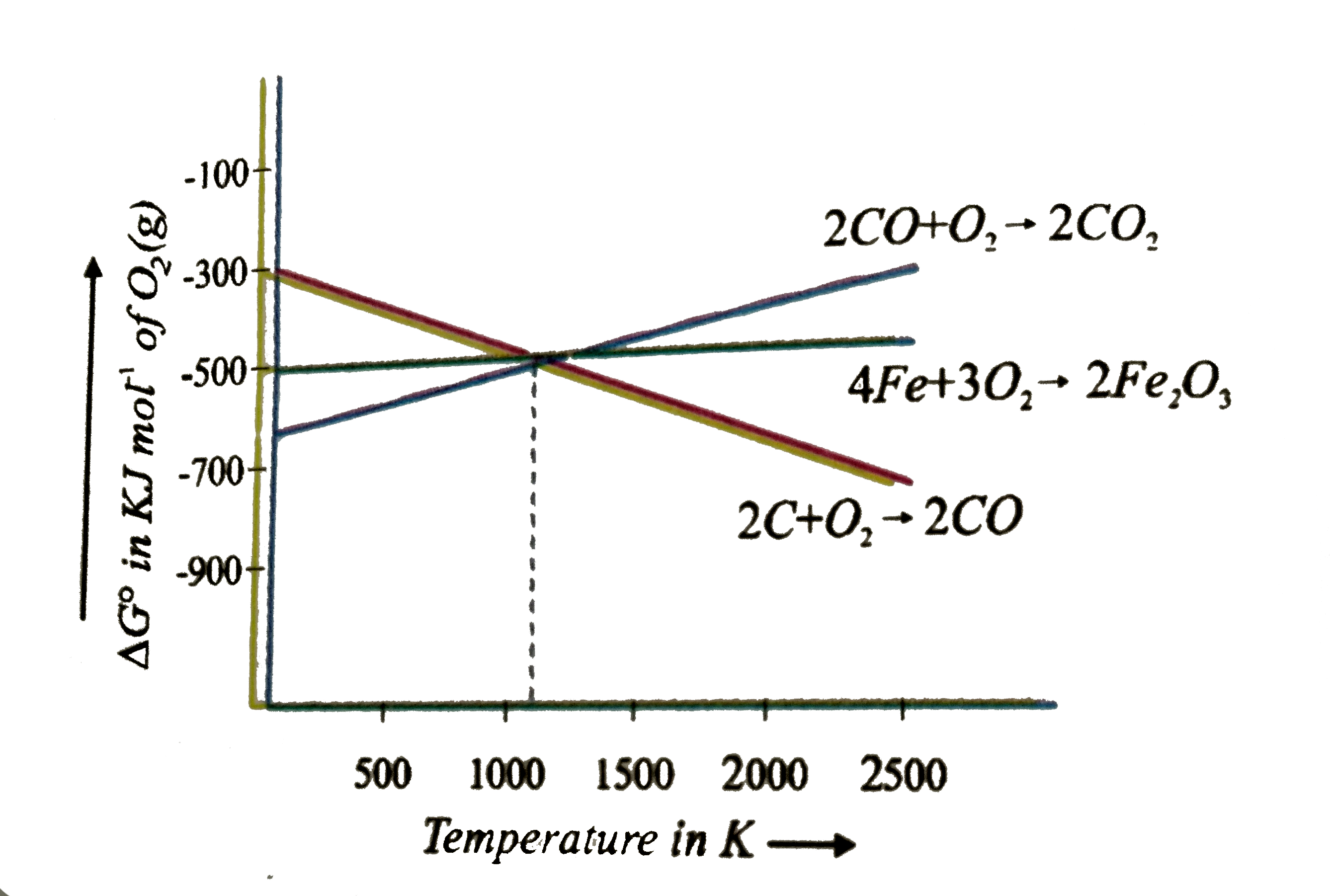Correct statements form the graph

I) Above 1073K, ΔG0 for the formation of Fe2O3 is less negative than ΔG0 for the formation of CO from carbon
II) Above 1073K, Carbon can reduce Fe2O3
III) Below 1073K, CO can reduce Fe2O3
IV) In blast furnace, reduction of Fe2O3 occurs in different temperature ranges with below 1073K by CO (or) above 1073K by carbon
A
Only I
B
I, II only
C
I, II, III only
D
All
Text Solution
The correct Answer is:D
If ΔG=−ve the process is spontaneous
|
Topper's Solved these Questions
- METALLURGYBOOK - NARAYNACHAPTER - METALLURGYEXERCISE - EXERCISE - 2 (REFINING OF METALS AND USES)
6 Videos
- METALLURGYBOOK - NARAYNACHAPTER - METALLURGYEXERCISE - EXERCISE - II (HOME WORK)
9 Videos
- METALLURGYBOOK - NARAYNACHAPTER - METALLURGYEXERCISE - EXERCISE - 2 (CONCENTRATION OF ORES)
4 Videos
- HALOGEN COMPOUNDSBOOK - NARAYNACHAPTER - HALOGEN COMPOUNDSEXERCISE - Passage 13
1 Videos
- METTALURGYBOOK - NARAYNACHAPTER - METTALURGYEXERCISE - Statement Typer Question
2 Videos
Similar Questions
Knowledge Check
Reduction of Fe2O3 with CO is done below 710∘C.
ΔfGӨ is negative at this temperature , this process is spontaneous.AOnly IBI,II onlyCI,II,III onlyDAllCorrect statements from the graph

I) Above 1073 K,ΔG0 for the formation of F2O3 is less negative than ΔG0 for the formation of CO from carbon
II) Above 1073K, Carbon can reduce Fe2O3
III) Below 1073K, CO can reduce Fe2O3
IV) In blast furnance, reduction of Fe2CO3 occurs in different temperature ranges with below 1073K by CO (or) above 1073 K by carbonAOnly IBI,II onlyCI,II,III onlyDAllDirect reduction of Fe2O3 by CO is possible at temperature.
Aless than 1123 KBequal to or less than 1123 KCmore than 1123 KDequal to or more than 1123 K.
Above 1073 K, ………… reduces FeO to Fe while below 1073K, …………… reduces Fe2O3 to Fe.
View SolutionDirect reduction of Fe2O3 by Carbon is possible at temperature.
View SolutionCarbon cannot reduce Fe2O3 to Fe at a temperature below 983K because
View SolutionCabon cannot reduce Fe2O3 to Fe at a temperature below 983K because.
View SolutionIn the extraction of Fe from Fe2O3 the reducing agent is
View Solution
